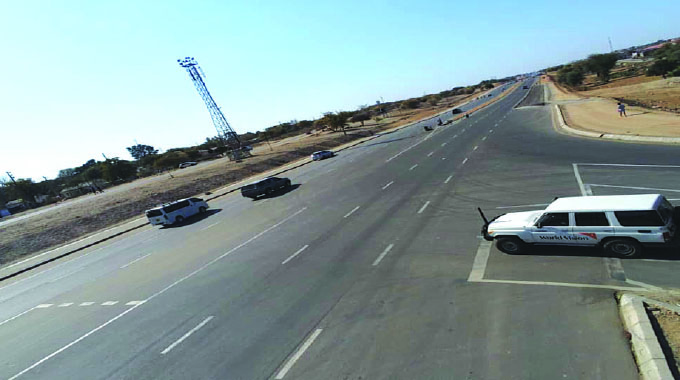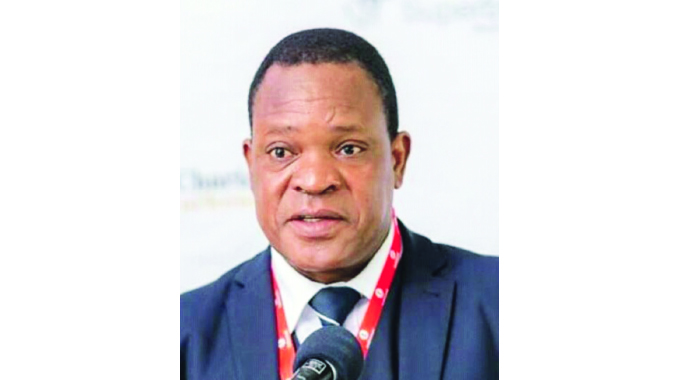Transporters, businesspeople hail roads rehab

Freeman Razemba Senior Reporter
Transport operators and businesspeople have thanked the Government for the rehabilitation of major roads across the country under the Emergency Roads Rehabilitation Programme (ERRP) as the Second Republic continues transforming the road network.
Works on many roads are progressing with a lot done and teams at work showing the programme is continuing. This has already reduced the cost of travelling for people living in rural areas, while also allowing motorists to save huge sums of money they have been spending on vehicle repairs, especially the suspension.
Even in cities, many roads have been repaired after the Government realised that waiting for the opposition-run Harare City Council to fix them was not yielding results.
In an interview, Greater Harare Association secretary-general Mr Ngoni Katsvairo applauded Government for the programme saying as operators this will also cut operational costs especially on repairs.
“If the roads are all in a good state, this will ensure that our vehicles will remain roadworthy as well as the condition of the tyres. This reduces costs of operation as there will be no need to continue repairing cars because of the state of the roads,” he said.
Decent roads also ensured the safety of passengers as there will be a reduction in road traffic accidents.
“For the general public travelling will also be made easy as there will also be availability of more transport,” he said.
Traffic Safety Council of Zimbabwe chair Mr Kura Sibanda said once roads have been rehabilitated, they improve road safety.
“Remember we have had accidents that were being attributed to the poor state of the roads a few years ago. As Traffic Safety Council of Zimbabwe our mandate is to promote traffic safety and the backbone is our road network. We applaud Government for this ongoing programme because now there are less accidents being attributed to poor roads.
“This programme also promotes economic activities because vehicles are now able to move faster, not speeding, but on time. And also prior to the rehabilitation of the Beitbridge Road and the construction of the border post, we used to have about 700 haulage trucks per day crossing but now we have about 1 000 trucks per day as a result of this road,” he said.
Mr Sibanda said the country’s GDP had also gone up.
“We would like to commend Government and need it to continue with the programme for economic growth and for the benefit of the nation and visitors,” he said.
Local businessman Mr Samson Paul said: “Government under the Second Republic and the leadership of President Mnangagwa is doing a good job by prioritising infrastructure development countrywide.
“Transportation of our goods would be made easy and its now different when the state of the roads were in poor conditions. As businesspeople we are happy with this programme.”
Zimbabwe Union of Drivers and Conductors president Mr Fradreck Maguramhinga said as drivers they also happy with this programme which is going on smoothly.
“It is going on smoothly and we would want to urge Government to continue rehabilitating the roads. Bridges should also be repaired and reconstructed.
“And also the focus now should be on the Chirundu Highway which links economic trade and also other major highways. And even those in residential areas should also be prioritised because some of them link to shopping centres and hospitals,” he said.
Mr Maguramhinga was concerned over some humps that had been erected saying some of them were too big for smaller cars such that when drivers slow down to negotiate them they were being targeted by criminals.
The Second Republic’s robust infrastructural development drive dovetails with the country’s vision of attaining an upper-middle-income society status by 2030.
The Government has so far spent over $1 billion on road rehabilitation, gravelling and drainage structuring as part of the Second Republic’s ERRP2 launched by President Mnangagwa early last year.
Sometimes a major roads programme requires people or businesses to move, but in those cases compensation is paid at full value. At least 135 residential, industrial and commercial properties built near the Mbudzi roundabout in Harare will also have to be demolished to pave way for the construction of 14 bridges and bridge-like structures at the new traffic interchange taking shape there, but the owners will get full compensation from the Government.
The largest property owner affected tried to get an injunction barring the work but the High Court noted that a reasonable offer came in before the matter was heard, so there was no need for a court order.
The Mbudzi roundabout is at the intersection of Simon Mazorodze, Chitungwiza, and High Glen Roads that feed traffic from western Chitungwiza and many old and new suburbs into Harare city centre, as well as the heavy national and regional traffic on the Harare-Masvingo Highway.
The widening of the Beitbridge-Harare-Chirundu Highway, plus its reconstruction and rehabilitation, is a critical component of the North-South Corridor.
The project is being undertaken by five local companies and is being wholly funded by the Government.
The main Beitbridge, Masvingo-Harare-Chirundu 971km highway has been divided into three sections: Beitbridge-Harare 570km (eight toll plazas), Harare-Chirundu 342km (six toll plazas), and Harare Ring Road 59km (three toll plazas).
Under the infrastructure, utilities, and digital economy cluster, Zimbabwe’s economic blueprint, the National Development Strategy (NDS 1) prioritises completion of road rehabilitation.
Previously, local companies were overlooked in terms of the awarding of tenders for big national projects.
President Mnangagwa recently said under the Second Republic, the Government took a bold, decisive, and revolutionary decision to fundamentally transform the country through the awarding of procurement contracts and tenders to local enterprises.
Transport and Infrastructural Development Minister Felix Mhona recently said the quality of work by construction companies involved in ERRP was satisfactory and the roads can last up to 20 years before requiring extensive rehabilitation.









Comments